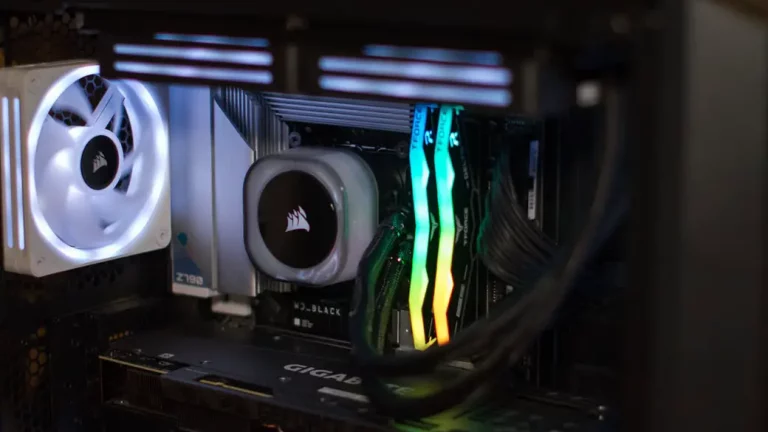Are you building a new PC or considering a hardware upgrade to enhance your system’s performance? If so, you might not be aware that DDR5 RAM has become quite affordable and offers significantly greater capacity and faster data transfer rates compared to its predecessor, DDR4. Additionally, modern motherboards have released new BIOS versions that offer increasing compatibility with DDR5 RAM.
If you’re currently using DDR4 RAM, now is an excellent time to upgrade—just make sure your motherboard supports DDR5. For instance, the T-Force Delta RGB DDR5 RAM is available at a reasonable price of A$229 for a 32GB kit (2x16GB) and includes Intel XMP 3.0 and RGB support.
T-Force Delta RGB 32GB 7200MHz DDR5 Review – Packaging Contents 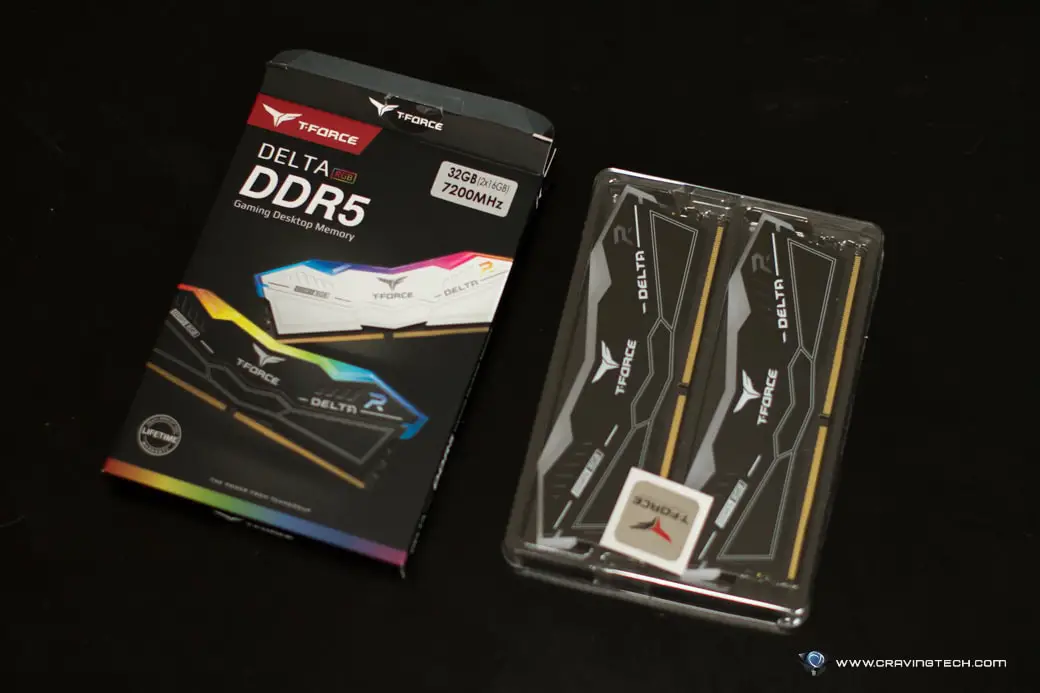 T-Force Delta RGB 32GB 7200MHz DDR5 Review – Design, Features, and Performance
T-Force Delta RGB 32GB 7200MHz DDR5 Review – Design, Features, and Performance
This RAM is designed with inspiration from stealth aircraft, giving it a sleek and modern appearance. It features 120-degree Ultra-Wide RGB lighting on the top, and thanks to its smart RGB IC controller, you can customise and sync its lighting through compatible software such as ASUS Aura Sync, GIGABYTE RGB Fusion 2.0, MSI Mystic Light Sync, ASROCK-Polychrome Sync, and BIOSTAR Advanced VIVID LED DJ. This synchronisation allows you to control all hardware components with a single software, assuming your other hardware supports it.
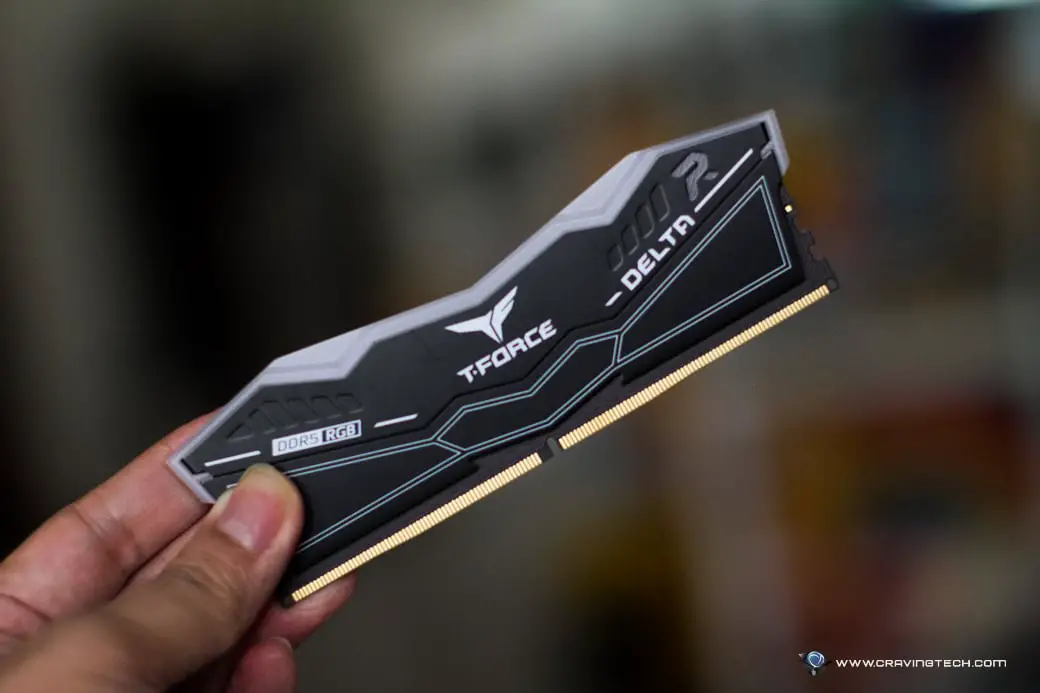
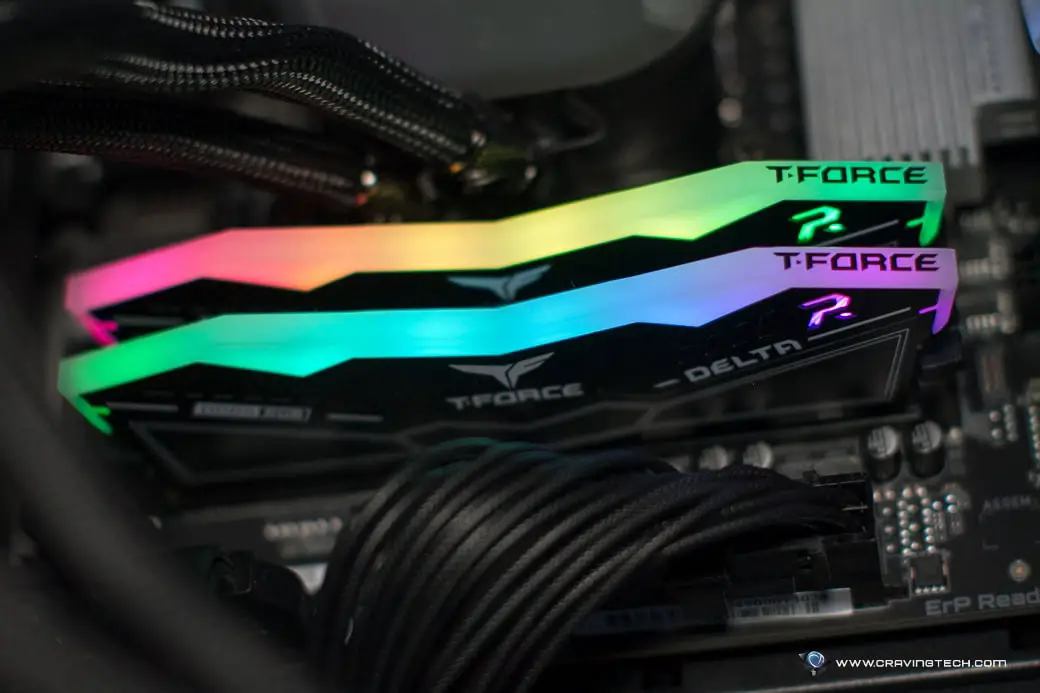
The T-Force Delta RGB DDR5 RAM comes in various capacities and frequencies, with options up to 8,200MHz. However, achieving speeds of 7,600MHz and above typically requires very high-end motherboards, which can be quite expensive, ranging from A$800 to A$1500. The review unit I received is a 32GB kit (2x16GB) rated up to 7,200MHz. With XMP 3.0 support, achieving this speed is as simple as toggling a switch in the motherboard BIOS.
Here are my PC specs:
- Processor: Intel i7 14700K
- Motherboard: GIGABYTE Z790 AERO G
- Graphics card: NVIDIA GeForce RTX 3080 GAMING OC 10GB
- Cooling: iCUE LINK H115i RGB AIO 280mm Radiator & four iCUE LINK QX120 fans
There are two available XMP Profiles: 6,000MHz and 7,200MHz. If your motherboard doesn’t support the 7,200MHz profile, you can opt for the 6,000MHz profile and potentially upgrade your motherboard in the future. My GIGABYTE Z790 AERO G supports up to 7,600MHz, so I chose the 7,200MHz profile. To activate this, simply select the XMP option in your BIOS and switch the default to XMP 1.
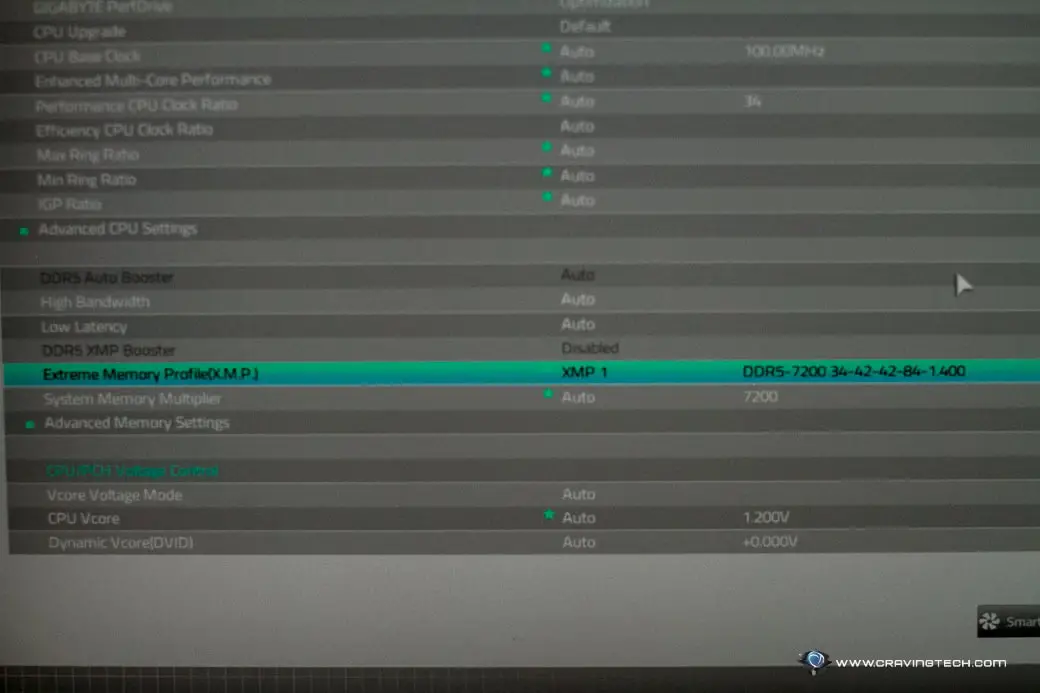
At 7,200MHz, you’ll experience a latency of 34-42-42-84 with a voltage of 1.4V, providing a data transfer bandwidth of around 57,600 MB/s.
Initially, I encountered issues setting the speed to 7,200MHz due to an outdated BIOS. After updating my GIGABYTE Z790 AERO G to the latest BIOS version (F12a), the problems were resolved.
Here’s a comparison between 6,000MHz and 7,200MHz on CPU-Z:
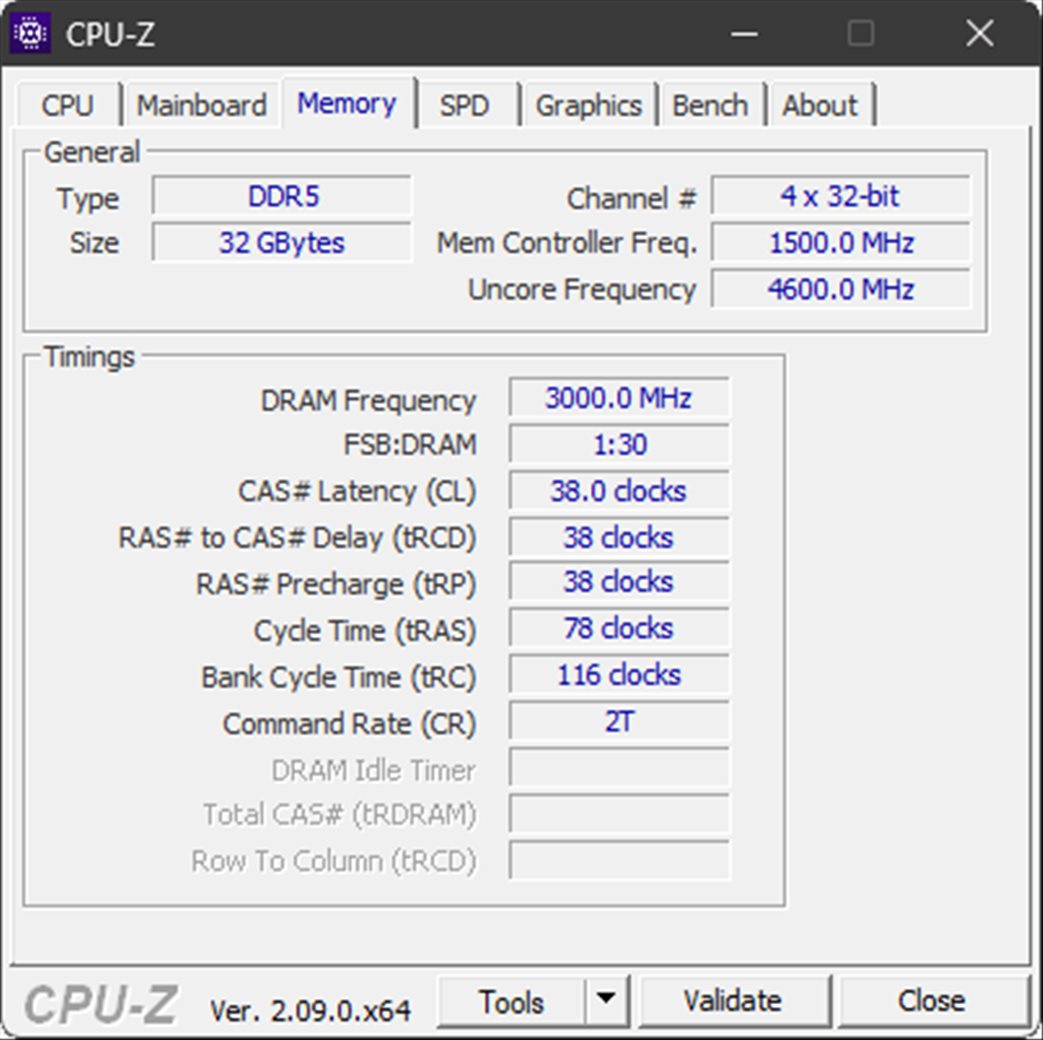
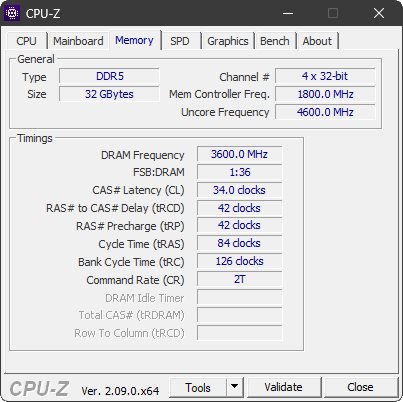
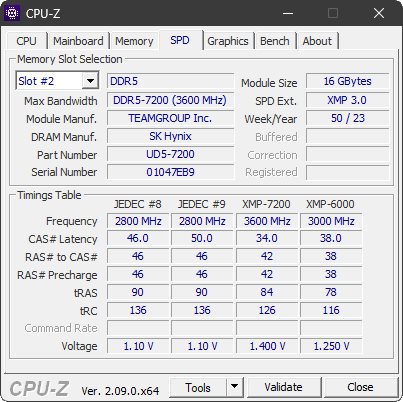
Speed comparisons when tested with AIDA64:
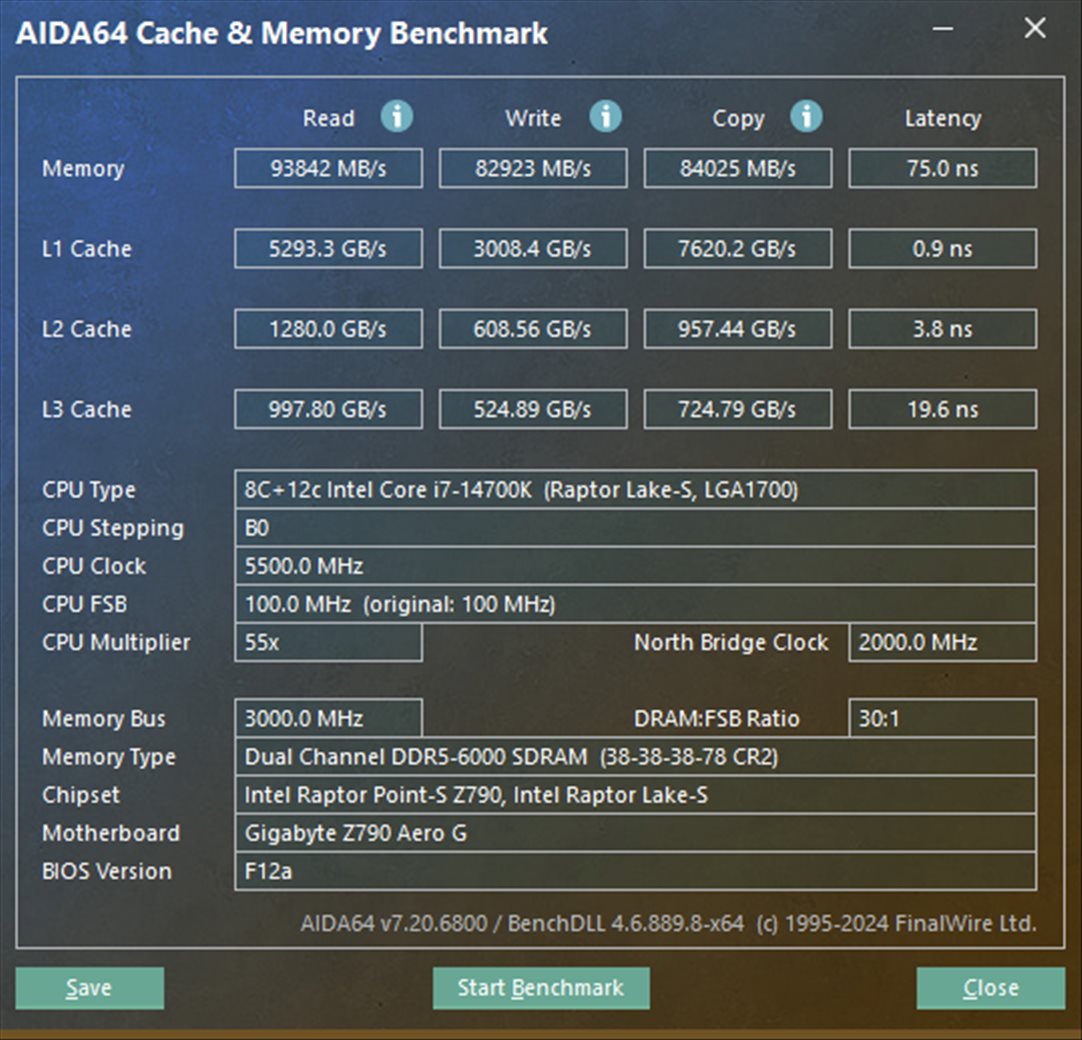
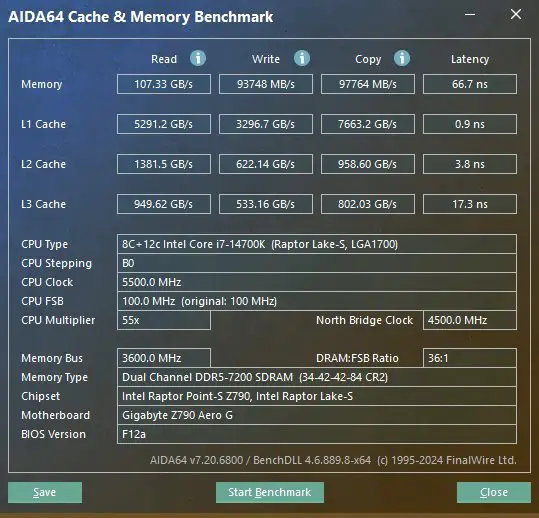
Additional screenshots of the RAM tested on a different machine with a Z790 AORUS Elite AX motherboard:
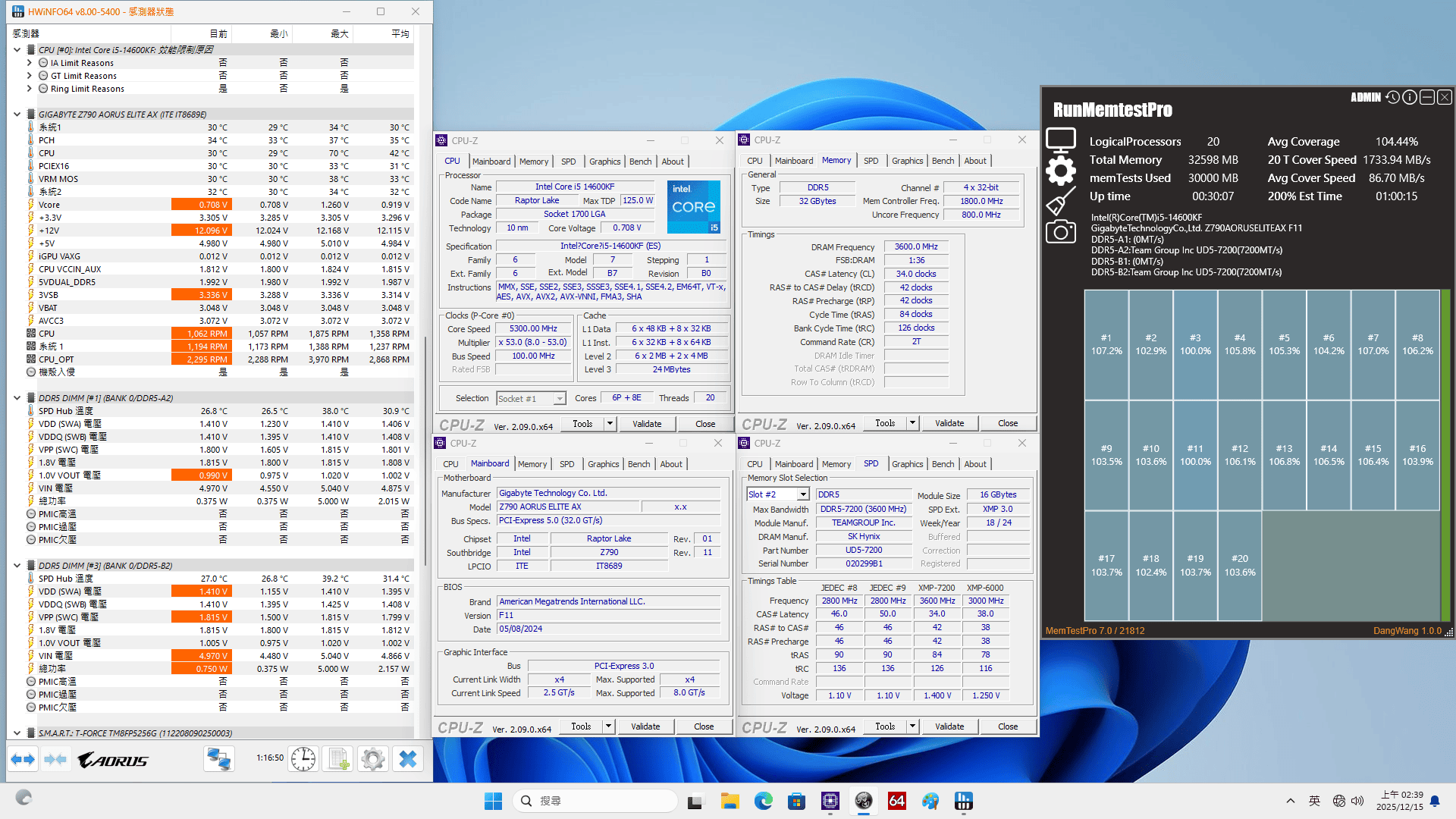
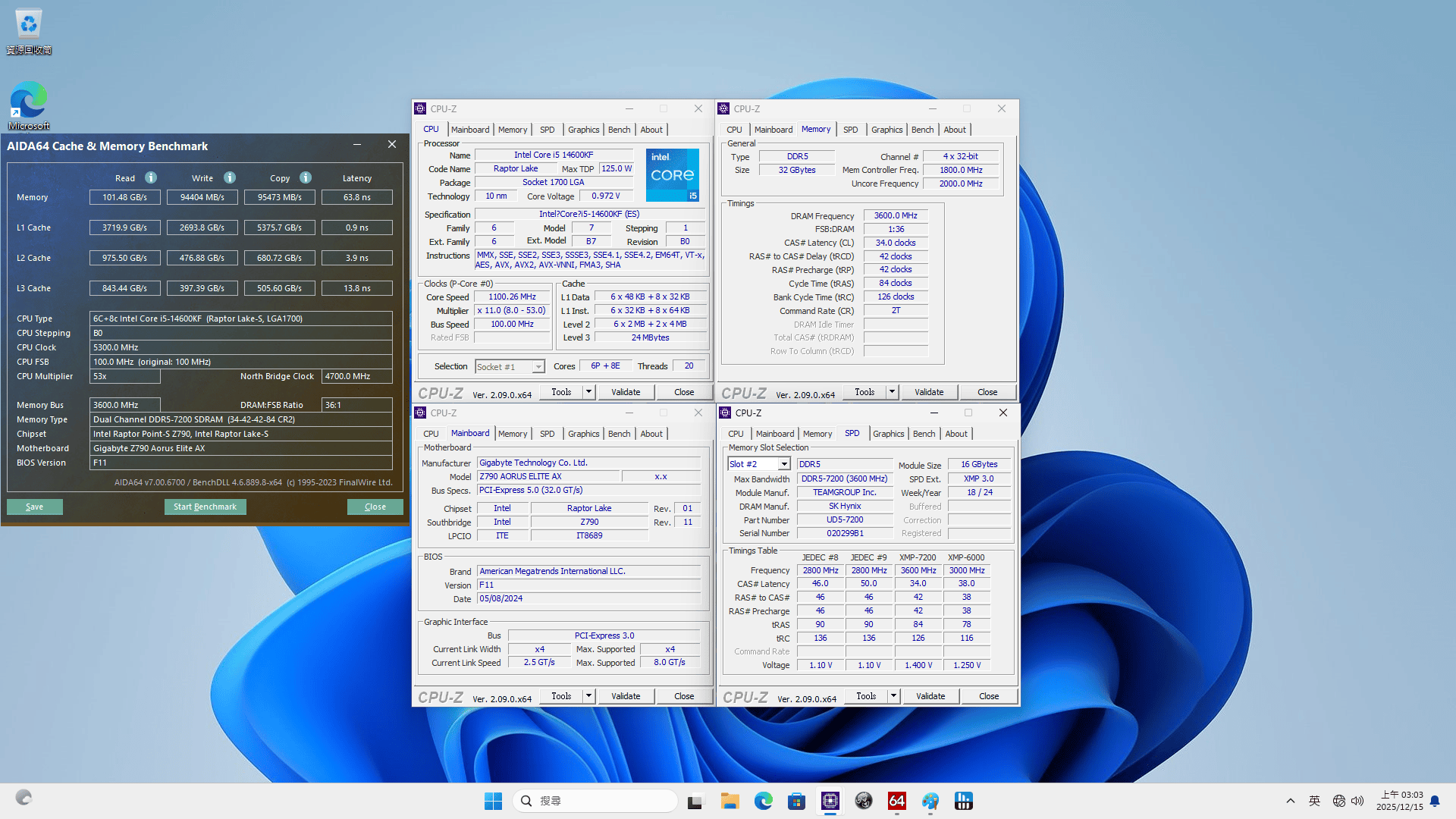
I opted for the 7,200MHz profile, and the system has remained stable for the past two weeks with no crashes or freezes after the BIOS update. Games like Overwatch 2 and Ghost of Tsushima: Director’s Cut for PC load swiftly, even with maximum graphical settings, thanks to the combination of the RAM speed, processor, and M.2 NVMe SSD.
Stress-testing the RAM with MemTest86 for about 2 hours resulted in a PASS:
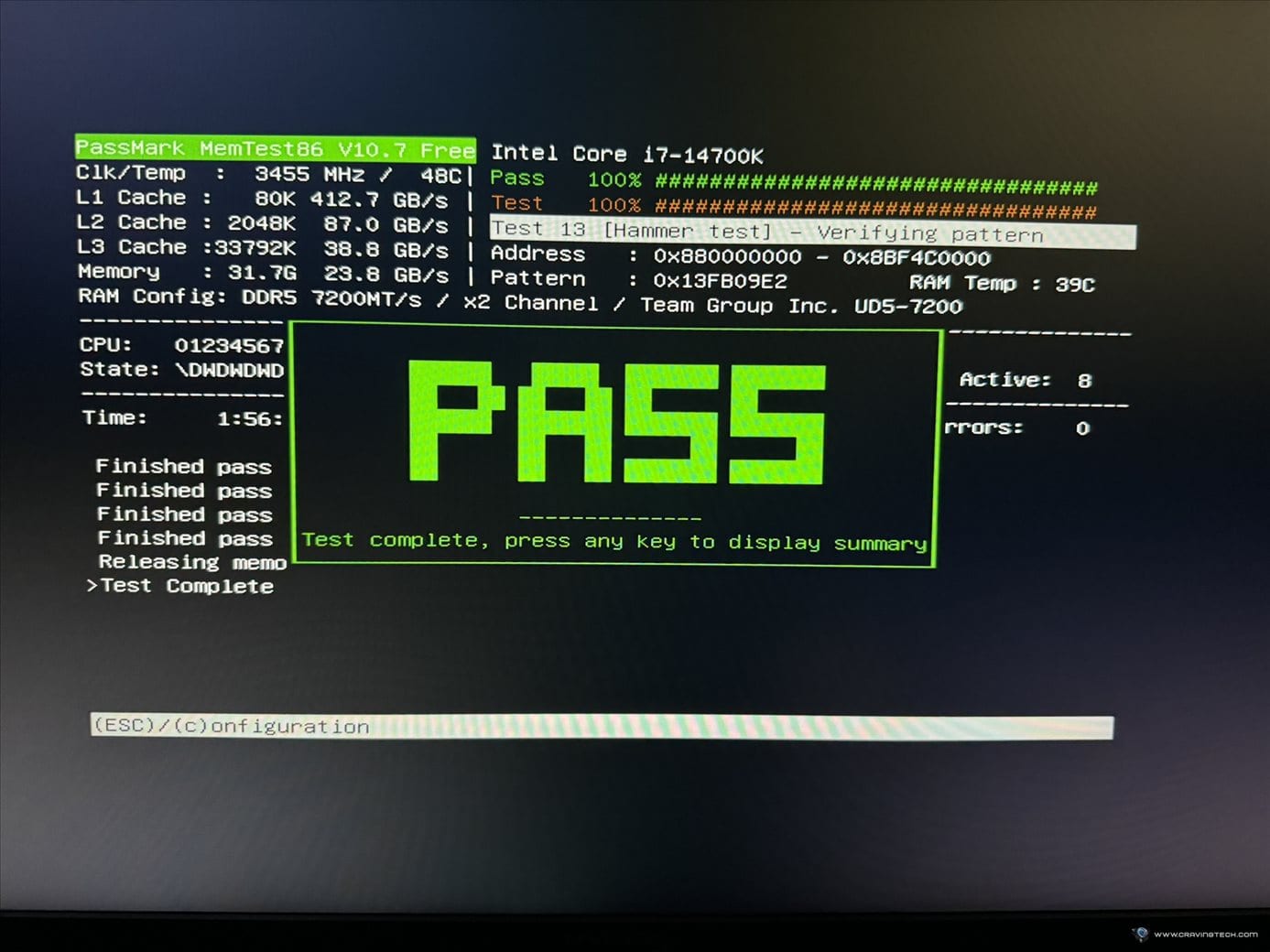
The RAM’s temperature remained stable, averaging between 35-40 degrees Celsius. According to T-Force, the DELTA RGB DDR5 is equipped with “professional thermally conductive silicon, reinforced PMIC cooling design, and effective, stable PMIC operations,” which seems accurate based on my experience. Even while playing Ghost of Tsushima at the highest settings, the system and memory performance were stable. The built-in heatsink and well-designed components contribute significantly to this stability and performance.
T-Force Delta RGB DDR5 Review Conclusion 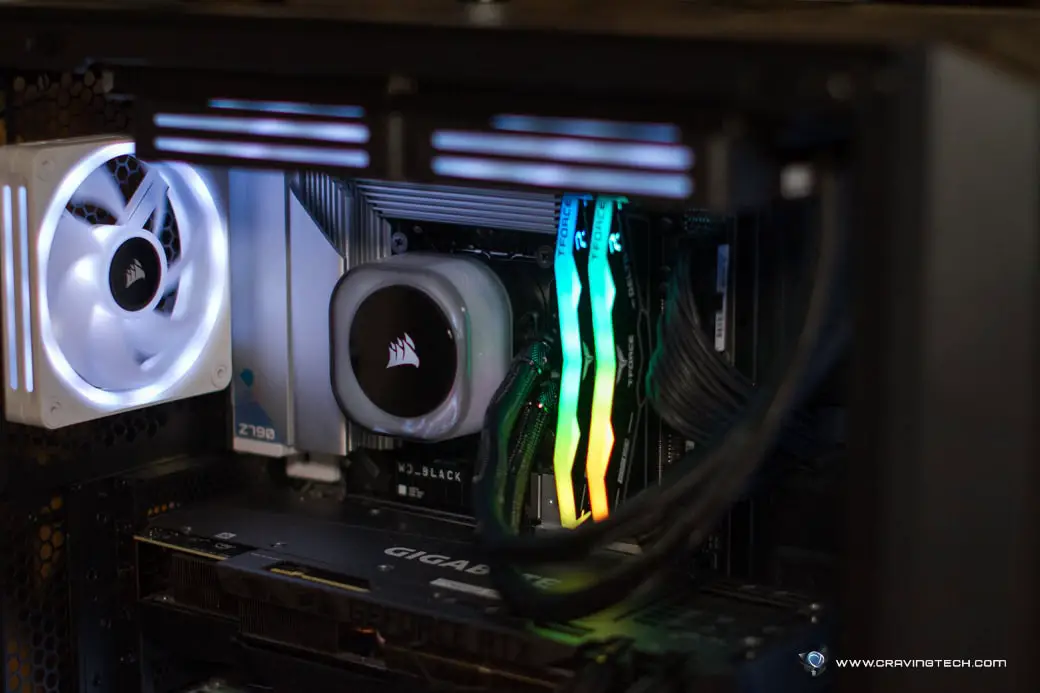
The T-Force Delta RGB DDR5 RAM stands out as a remarkable upgrade for both gamers and general PC users looking to enhance their system’s performance. Its sleek design, inspired by stealth aircraft, not only adds a modern aesthetic to your setup but also provides 120-degree Ultra-Wide RGB lighting customisable through various software platforms. The RAM’s performance is notable, offering speeds up to 7,200MHz (on my review unit) with Intel XMP 3.0 support, ensuring easy overclocking for optimal data transfer rates.
Throughout my testing, the T-Force Delta RGB DDR5 demonstrated impressive stability and efficiency, even under heavy gaming and multitasking conditions.
This RAM also excels in thermal management, maintaining a stable temperature range thanks to its professional thermally conductive silicon and reinforced PMIC cooling design. The ease of integration with various RGB lighting control software further enhances its appeal, allowing for a synchronised and visually pleasing PC environment.
Considering its affordable price point of A$229 for a 32GB kit (compared to the Kingston FURY Renegade‘s), the T-Force Delta RGB DDR5 offers excellent value, making it a compelling choice for those looking to transition from DDR4 to DDR5. If you’re planning a new build or upgrading your current system, the T-Force Delta RGB DDR5 RAM is a worthy investment that delivers on both performance and style.
You can purchase it at retailers around Australia, such as Scorptec.
Disclosure: T-Force Delta RGB 32GB 7200MHz DDR5 review sample was supplied for reviewing

